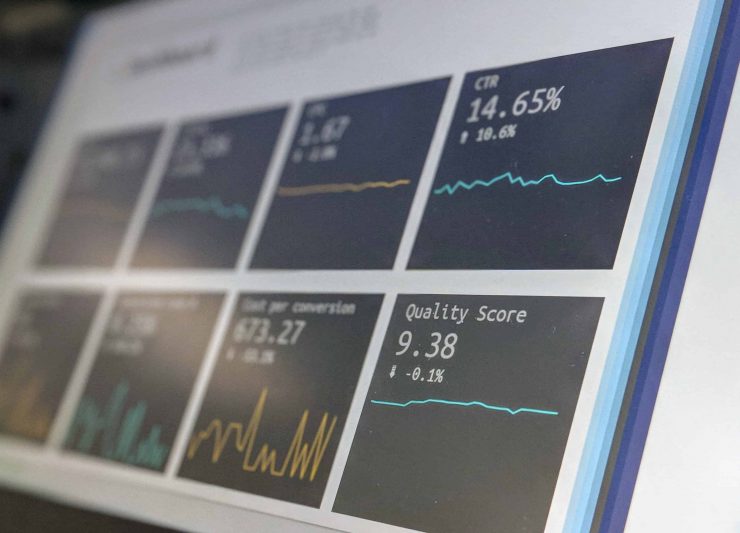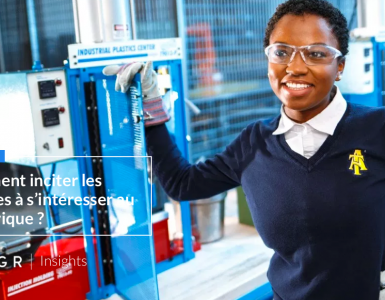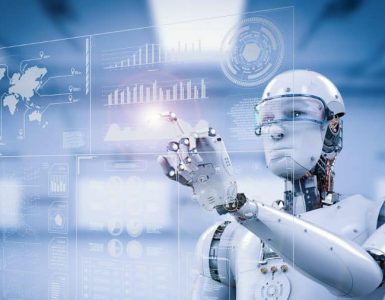The first thing that we can say is that in 2018, we heard a lot about Industry 4.0… The term “buzz word” has taken its full meaning as this word buzzed into our ears all the year, sometimes not for the good reasons.
I promise we will try not to use it too much in this article… So… ready to go back in time?
1- 3D printing
2018 was definitely a great year for additive printing. At the end of this year, the 3D printing market represents 9,3M$. Research on new printable materials is increasing, opening more possibilities for applications.
Additive printing has a large number of applications. It is used in various fields such as medical, automotive, construction, environment protection (it has been used in 2018 to restore coral reefs) or even music! (The Ottawa Orchestra has performed only with 3D printed instruments).
Regarding the manufacturing industry, 3D printing is mainly used in the automotive industry. According to the American research firm SmarTech Publishing, this market should reach 12,4M$ by 2028.
More and more players are adopting 3D technologies to design parts, functional prototypes or tools. BMW is a great example: the manufacturer has announced that it has produced one million 3D printed parts during the past ten years. Audi and BMW have opened their own additive manufacturing centers, enabling them to accelerate their prototyping and therefore, their manufacturing processes, but also to offer their clients more and more customizations options. A trend that should grow in the future given the importance that consumers place on it…
A proof of the increasing interest for this technology in all fields is that the German engineering federation VDMA is currently developing its roadmap for 3D printing … So we will not be done hearing about it in 2019!
2- Artificial Intelligence
Another year in which artificial intelligence will have made people talk about it… It is with no doubt the technology that we heard the most about and that had the most dedicated events in 2018.
Every day, events about artificial intelligence stand everywhere in the world and all governments have fought in this race for progress, positioning themselves as future users of AI and increasing investments. This race is now led by China, and even if Canada is still keeping its image of global incubator for artificial intelligence, its development in the companies is still slow. France and Canada announced at the end of the year the creation of a Franco-Canadian alliance to promote artificial intelligence.
In the manufacturing sector, and according to Forrester Research, the market of AI-powered software for automation should meet a really quick growth and triple to US$2,9 billion over the next three years. Still, according to Forrester by 2021, this technology will do the same work as about 4,3 million people around the world.
The thing to retain about the expansion of artificial intelligence in 2018 is the involvement of humans. For a long time, human beings and artificial intelligence have been opposed in the collective imagination, but the situation is reversing, and artificial intelligence is increasingly applied in training and in improving human working conditions.
According to McKinsey, by 2030, 70% of companies should have adopted artificial intelligence. This technology is already reshaping our world and it is not going to end soon… To be continued…
3- Automation
The main information to retain about automation in 2018 is that it is less and less frightening for people.
For a long time, automatization has been considered as the enemy of the human workforce. However, this year, the labor shortage that strikes Canada, the fact that the number of tasks that no one wants to perform anymore is increasing and the feedback on how automation can facilitate human work has finally seduced… And finally, in 2018, it gained its position of a technology in the service of humanity.
Several studies have shown that its implementation in manufacturing makes work less difficult, creates more human-friendly work environments by improving learning, collaboration, and performance (not to mention the productivity gains that it allows).
According to the organizers of the World Economic Forum (WEF), by 2025, machines will be responsible for 52% of work compared to 29% today. And still according to this report, more than a quarter of companies expect automation to create new opportunities and new jobs, increasing their teams.
Lastly, the other main highlight of this year is the development of collaborative robots, i.e. robots that work together with humans. The introduction of these robots makes it easier for employees to work, eliminates the riskiest tasks and thus gains everyone’s support.
The progress of automation, although promising, still raises the question of “recycling” employees whose workstations are automated, this will probably be the real challenge of the future…
4- Predictive maintenance
One of the main topics of 2018 was the expansion of predictive maintenance in companies. Advances in other technologies in the 4.0 industry (big data, artificial intelligence, etc.) have enabled predictive maintenance to increase its power. At BRIDGR, we have received many requests in this way, both from manufacturers looking for solutions and from technology suppliers, who are more and more numerous to offer this type of solution.
Industrial companies have really realized the importance of predictive maintenance, and it is often a small project that is easy to set up to begin a digital shift. The machines produce all the data and it is therefore easy to analyze and use them to set up predictive maintenance.
Besides, at a time when all the companies on the world stage are competing to be the most competitive, optimizing machines and reducing downtime are crucial issues to gain competitiveness.
According to a McKinsey study, the savings from predictive maintenance in factories could reach $640 billion by 2025. When you consider that in the automotive industry, a single hour of downtime in the production line can cost up to $1.3 million, it is easy to understand how this figure can be reached. We will have the opportunity to discuss this again in 2019, but we are convinced that the process will not stop any time soon.
5- Cyber-security
Cybersecurity is THE topic of industry 4.0. It is unfortunately often forgotten, however, it is crucial to be well protected in order to last and maintain the trust of customers and partners. In 2018, many articles, conferences, events, think tanks… related to cybersecurity have multiplied all over the world, trying to raise awareness among companies so that the fear of a cyber attack is not an obstacle to the implementation of technologies.
2018 has indeed seen a large number of cyber attacks (500 million customers for Marriott hotels, 150 million for Under Armour, 50 million users for Facebook).
This year’s big news on cybersecurity is most certainly the introduction in May of the new European Regulation on the Protection of Personal Data (DGPS). It is most probable that this type of law will appear in many countries…
When we know that cyber attacks cost $600 billion a year worldwide, a figure that is increasing due to the growing competence of hackers and the rise of cryptomarkets, we understand why the subject is so important for leaders.
6- Way of working
Finally, to close this overview of 2018, a subject that has been much discussed this year is the way in which new technologies, by disrupting the world of business, have challenged the place of the human being in organizations.
This is a subject that was much discussed in 2018 and the main lesson of all the literature on this subject is that humans are more and more at the heart of technological progress. Automation, artificial intelligence… all these technologies aim to improve the work of humans, to enable them to become more competent, better trained, but also more flexible, to offer them the possibility to adapt their way of working, to better balance their time between private and work-life…
In conclusion, 2018 was a great year for the industry 4.0, a year that came with many challenges but a year full of optimism that opens beautiful doors around 2019…






